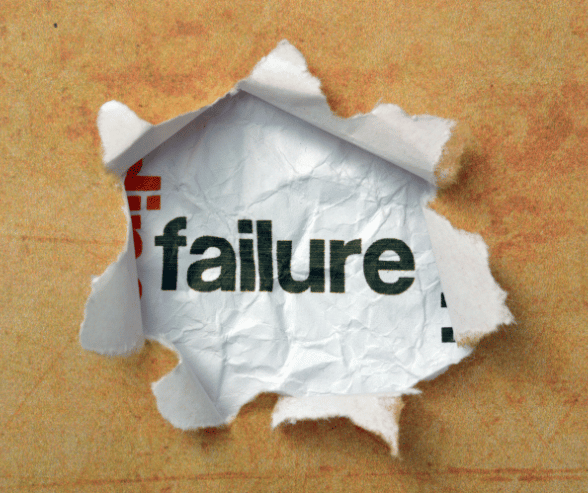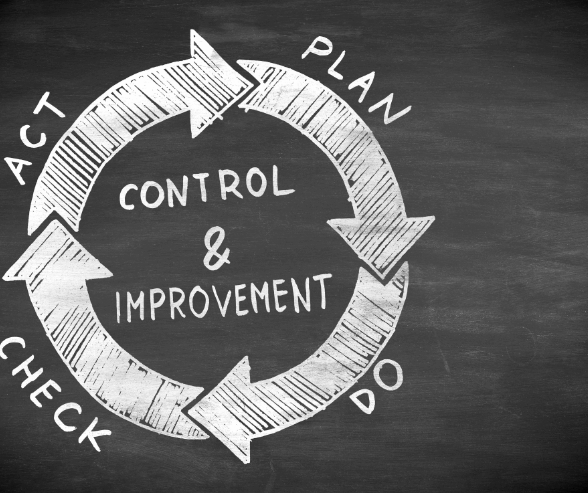What Happens If I Fail a Class in College? This is a very common question that almost every college student asks.
Failing a class in college can be a devastating experience, and it’s important to understand the consequences.
In this article, we’ll explore what happens if you fail a class in college and what steps you can take to get back on track.
Common Reasons Why Students Fail in A Class
Here are some of the common reasons why students may struggle to succeed in college:

- Lack of time management skills: College requires a lot of time management skills. If a student cannot manage their time effectively, they may struggle to complete assignments on time, study for exams, attend class, and balance their personal life.
- Poor study habits: Successful students have excellent study habits that help them retain information better and prepare them for exams. Poor study habits such as cramming, procrastination, and lack of focus may lead to poor academic performance.
- Attendance issues: Regular class attendance is crucial for academic success. Students who miss classes regularly may miss important information, discussions, and assignments, leading to poor academic performance.
- Lack of motivation: Motivation is essential for academic success. Students who lack motivation may not put in the effort required to succeed in class.
- Health issues: Health issues such as stress, anxiety, and illness may affect a student’s ability to perform well in class.
- Financial problems: Financial issues such as the inability to pay tuition and lack of funds for textbooks and other academic materials may hinder a student’s academic performance.
Understanding the Implications of Failing a Class
Failing a class can have wide-ranging consequences that extend beyond a mere letter grade. It’s essential to recognize these implications and address them effectively.
Let’s delve deeper into some of the most notable consequences of failing a class in college.
1. Academic Consequences of Failing a Class
- Impact on GPA
One of the primary academic consequences of failing a class is its impact on your GPA (Grade Point Average). Your GPA reflects your overall academic performance and is often considered by employers, graduate schools, and other institutions.
Failing a class can significantly lower your GPA and may require substantial effort to recover from the resulting GPA drop.
When your GPA drops, it affects your academic standing and your eligibility for scholarships, honors programs, or graduate school admission.
A low GPA can also limit opportunities and make competing with other students in a competitive academic or professional environment more challenging.
Also Read: Credits Needed to Graduate

- Academic Probation and Suspension
Repeatedly failing classes or having a consistently low GPA can result in academic probation or suspension. Academic probation is a warning period during which your academic performance is closely monitored. It serves as an opportunity to improve and meet specific academic requirements.
If you fail to make satisfactory progress or raise your GPA to the required level, you may face suspension.
Academic suspension can be a significant setback as it entails a temporary halt to your studies. During the suspension period, you are typically not allowed to take classes at the institution and may need to reapply for admission after the specified period.
The length of the suspension period varies depending on the institution’s policies and the severity of the academic deficiency.
- Delayed Graduation
Failing a class, especially if it is a prerequisite for other required courses, can delay your graduation. This delay can have financial implications, such as the need to pay for additional semesters or courses.
Moreover, it may also impact your post-graduation plans, such as entering the job market or pursuing further education.
In some cases, failing a class can result in a domino effect, affecting the sequencing of courses and potentially extending the time required to fulfill degree requirements.
It’s important to consult with your academic advisor to develop a revised plan and ensure that you can still graduate within a reasonable timeframe.
2. Financial Consequences of Failing a Class
- Loss of Tuition Fees
When you fail a class, you may lose the tuition fees associated with that course. College education represents a significant financial investment; failing a class can feel like a wasted opportunity.
The loss of tuition fees can be particularly significant if you rely on financial aid or pay for your education out of pocket.
To minimize the financial impact, it’s essential to understand the institution’s policies regarding tuition refunds or credits for dropped or failed courses. Some institutions may have specific deadlines or criteria for refund eligibility.
Familiarize yourself with these policies to make informed decisions and potentially reduce the financial burden of failing a class.
- Impact on Scholarships and Grants
If you have been awarded scholarships or grants, failing a class might jeopardize your eligibility to retain those funds.
Many scholarships require students to maintain a certain GPA or meet specific academic standards. Failing a class can result in a drop in your GPA or violation of the terms and conditions associated with your scholarships, potentially leading to the loss of financial support.
It’s essential to review the terms and conditions of your scholarships and grants carefully. Some scholarships may provide a grace period or allow for one-time GPA recovery, while others may have stricter requirements.
Communicate with the scholarship provider or the financial aid office to understand the potential consequences and explore possible remedies or alternative sources of financial aid.
- Increased Cost of Education
Retaking a failed class means incurring additional costs, including tuition fees, course materials, and potentially additional semesters of study. These expenses can add up, increasing the overall cost of your education.

Therefore, it’s important to budget accordingly and consider the financial impact of retaking a class, especially if you need to take it during a summer term or an additional semester.
To manage the increased costs, explore options such as taking the failed class at a community college or online institution, where tuition fees might be lower.
Additionally, to alleviate some of the financial burdens, investigate the availability of financial aid or scholarships specifically designated for students retaking classes.
3. Personal and Emotional Effects of Failing a Class
Failing a class can have personal and emotional effects that go beyond academic and financial considerations. You must address these effects to ensure overall well-being and future success.
- Disappointment and Self-esteem
Failing a class can be emotionally challenging. It often leads to disappointment, frustration, and a blow to one’s self-esteem.
The expectation of success and the desire to perform well academically can intensify these emotions. However, it’s important to remember that failure is a natural part of the learning process and does not define your worth or abilities.
- Stress and Anxiety
The fear of failure and the stress associated with it can lead to heightened levels of anxiety. The pressure to perform well academically and the fear of disappointing oneself or others can contribute to significant stress.
Failing a class may amplify these feelings of stress and anxiety, making it important to seek appropriate support and develop healthy coping mechanisms.

- Need for Resilience and Coping Mechanisms
Failing a class can test your resilience and require you to develop effective coping mechanisms. You must recognize that setbacks are a natural part of the learning process.
Building resilience involves bouncing back from failure, adapting to challenges, and persisting despite obstacles.
Seek support from academic advisors, mentors, or counseling services to develop strategies for managing stress and developing resilience.
Options and Steps to Take If You Fail a Class
While failing a class can feel discouraging, it’s crucial to remember that it’s not the end of the road. You can take steps to recover from this setback and continue your academic journey.
1. Assess the Situation
Take the time to reflect on why you failed the class. Was it due to insufficient preparation, personal challenges, or any other specific factors?
Understanding the root causes will help you identify areas for improvement and develop a plan to address them effectively.
Conduct an honest self-assessment of your study habits, time management skills, and overall approach to learning. Identify any weaknesses or areas where you may need additional support. This self-reflection will provide the foundation for developing a personalized plan for improvement.
2. Talk to Your Professor or Academic Advisor
Reach out to your professor or academic advisor to discuss your performance and explore potential options. They can provide valuable insight into your strengths and weaknesses, offer guidance on retaking the course or alternative courses, and recommend additional resources to help you succeed.
Establishing open lines of communication can demonstrate your commitment to improving and may lead to valuable support and guidance.

When communicating with your professor, be prepared with specific questions or concerns. Seek clarification on any areas of the course material that were challenging or unclear to you.
Discuss potential strategies for improving your understanding of the subject matter or specific assignments.
3. Consider Retaking the Course
If permitted, consider retaking the class to improve your grade. This allows you to gain a better understanding of the material and demonstrate your commitment to learning and growth.
Retaking the class provides an opportunity for a fresh start and a chance to reinforce your knowledge in the subject area.
Before retaking the class, carefully review your institution’s policies regarding retakes. Understand any limitations on the number of times you can retake a course and whether the previous grade will be replaced or averaged into your GPA.
Additionally, evaluate your schedule and workload to ensure you can dedicate adequate time and effort to the retaken class.
4. Utilize Academic Resources and Support Services
Colleges often provide a range of academic resources and support services to assist students in their academic journey. These resources can be invaluable when recovering from a failed class.
To strengthen your understanding of the subject matter, take advantage of tutoring services, study groups, writing centers, or academic workshops.
Tutoring services can provide one-on-one assistance tailored to your specific needs. Study groups offer opportunities for collaborative learning and exchanging ideas with peers.
Writing centers can help you improve your writing skills and provide assignment feedback. Academic workshops can provide strategies for effective studying, time management, and exam preparation.
5. Create a Plan for Improvement
Develop a realistic plan that outlines specific actions you will take to improve your performance. Set clear, achievable goals, create a study schedule, and implement effective study strategies.

Identify areas where you struggled in the failed class and develop strategies to address those weaknesses. Seeking accountability through study groups or study buddies can also help you stay on track and maintain motivation.
When creating your improvement plan, consider incorporating the following elements:
- Break down the course material into manageable chunks and create a study schedule that allows for consistent review and practice.
- Utilize active learning techniques such as summarizing information in your own words, creating flashcards, or teaching concepts to others.
- Seek out additional resources beyond the textbook, such as online tutorials, academic journals, or supplementary reading materials.
- Engage with the course material through different modalities, such as attending lectures, participating in discussions, or watching educational videos.
- Set specific goals for each study session, focusing on understanding key concepts, completing practice problems, or reviewing past assignments.
- Regularly assess your progress and adjust your study strategies as needed.
By developing a comprehensive plan for improvement, you can optimize your chances of success in the retaken class and address any underlying issues that may have contributed to your previous failure.
The Importance of Learning from Failure
While failing a class can be disheartening, it’s important to recognize the valuable lessons that can arise from failure.
Gaining Resilience and Perseverance
Overcoming failure builds resilience and strengthens your ability to face future challenges. It teaches you the importance of perseverance and instills a growth mindset.
Embrace the opportunity to learn from your mistakes, develop new strategies, and approach future academic endeavors with renewed determination.
Reflect on the ways in which you have demonstrated resilience in the face of failure in the past. Use those experiences as inspiration and motivation to bounce back from the current setback.
Remember that failure does not define you but rather provides an opportunity for growth and improvement.
Developing Problem-solving and Time Management Skills
Failing a class can highlight areas where you need to improve your problem-solving and time-management skills.
Take this opportunity to develop effective strategies and techniques to navigate academic demands better.
Consider seeking guidance from academic advisors or attending workshops on time management and effective study habits.

Use the experience of failing a class as a catalyst for honing your problem-solving skills. Identify any patterns or common challenges that contributed to your failure and brainstorm potential solutions.
Additionally, focus on developing strong time management habits that allow you to allocate sufficient time for studying, completing assignments, and seeking additional help.
Building Character and Maturity
Adversity and failure can shape your character and contribute to personal growth. Embrace the opportunity to learn from your mistakes, adapt, and emerge stronger and more mature.
The ability to bounce back from failure demonstrates resilience, perseverance, and a willingness to learn from setbacks—qualities that are highly valued in both academic and professional settings.
Cultivate a growth mindset that views failure as an opportunity for self-improvement rather than a reflection of your worth.
Embrace challenges, seek feedback, and be open to learning from your experiences. Demonstrating personal growth and maturity can have a positive impact on your future academic pursuits and professional endeavors.
Related Reads:
- What is considered a good GPA in high school?
- Discover the colleges with the lowest acceptance rates
Conclusion: What Happens If I Fail A Class In College
Failing a class in college can have significant academic, financial, personal, and emotional implications. However, it’s crucial to view failure as a stepping stone towards growth and improvement.
By addressing the consequences, seeking support, and learning from the experience, you can bounce back stronger and continue your educational journey with resilience and determination.
FAQs: What Happens If I Fail A Class In College?
Yes, many colleges allow students to retake a class in which they have received a failing grade. However, specific policies and procedures may vary, so it’s essential to consult with your academic advisor or refer to your institution’s guidelines.
Failing a class will lower your GPA as the grade obtained in the failed course is factored into your overall GPA calculation. The extent of the impact will depend on the number of credit hours associated with the failed class.
Failing a class can potentially affect your financial aid if it leads to a drop in your GPA or violates the terms and conditions of your scholarships or grants. It’s important to review your financial aid package’s specific requirements and consult with your college’s relevant offices.
Failing multiple classes can have more severe consequences, including academic probation, suspension, or even dismissal from your college or university. It’s crucial to seek guidance from your academic advisor to understand the specific policies and explore options for improvement.
While failing a class can be a setback, it’s not necessarily a determining factor in your future career prospects. Employers often consider a range of factors, including your overall academic performance, skills, experiences, and personal qualities. Focus on learning from your mistakes, improving your performance, and showcasing your strengths and abilities to future employers.

